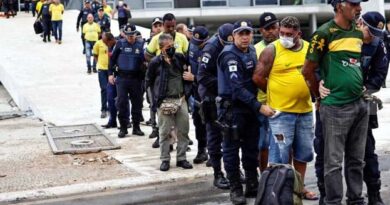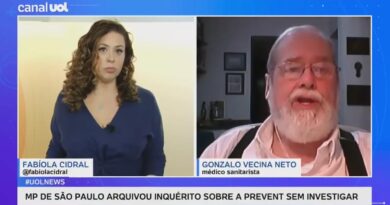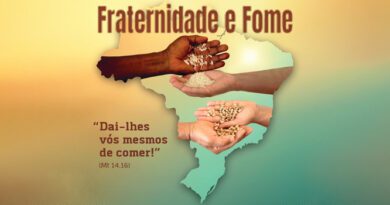POR QUE VOCÊ NÃO VOLTA PARA SUA CASA, PARA SUA TERRA?
According to certain migrant women, particularly Haitians and Venezuelans, but also of other nationalities, this is the question that many Brazilians approach them at work, in their homes or on the street. A question that, like so many others, emerges in places of destination, almost always hiding a good deal of discrimination, xenophobia, prejudice and fear… not to mention pure and simple racism. He asks that, moreover, he is unaware of so many disfigured faces, so many tired bodies and so many souls injured by the long journey. A journey that, instead of immediate and hasty judgments, requires a look of attention and care, along with a heart willing to listen.
It is worth highlighting that the question poorly and maliciously conceals a widespread rejection by all societies that receive migrants. A disagreement that, often, is formulated in another way, much less subtle and more declared: what did you come here to do? Why didn’t you stay with your people? Why bother us? Even worse: “this land is ours, it doesn’t belong to you”! “Each one in the land in which he was born”! These crossed, oblique and skewed glances are multiplying, which, at the same time, veil and reveal signs of intolerance and intransigence. Attitudes that, with a certain frequency, unfold into negatively sharp, aggressive and threatening words, actions and gestures, leading to confrontations.
Similar raised fingers, pointed at those who come “from outside”, criminalize the very act of migrating. The fear of those “inside”, consciously or unconsciously, clashes with the courage and hope of the other, of the strange, of the different. The meeting and the possibility of dialogue end up being replaced by the barrier that is established between the group of “ours” and the group of “theirs”. Instead of open communities, closed ghettos are formed, hermetically closed and any type of communication. A type of isolated “bubbles” that, with some frequency, end up becoming a breeding ground for hostility and hatred on both sides. Tensions that remain underground, but alive, and that, at any time and for anything, can explode into explicit conflicts.
In this way, an obstacle to mutual learning and enrichment is created. The “other” is immediately discarded as a source and opportunity for growth. According to the DSI (Social Doctrine of the Church), in the heart of each person and in the heart of each culture there are seeds of the Word. Which means that the other is a theological and spiritual place of values and wealth. To close oneself off from meeting and dialoging with it is to deny this spring of living water that comes from distinct and plural places and peoples. Far from impoverishing us, the migrant enriches us to the exact extent that we are open to confrontation, purification and purification of our own culture, which, like others, is marked by angels and demons, by chaff and wheat, by values and countervalues.
But not only that. Throughout history, many civilizations owed their development to the input and contribution of large human movements and migrants. These, in fact, even due to their youthful and enthusiastic energy, can represent new blood in societies that are heading towards decline and decadence; or they can constitute spring oxygen in organisms that irreversibly move towards autumn. Rejecting them, out of the blue, is equivalent to losing the capacity for renewal, for a true and positive metamorphosis. The presence of the other always questions and challenges, raising questions that trigger the dynamic mechanism of identity itself, ours and theirs. Human mobility intertwines and weaves new and unprecedented relationships.
From this perspective, migrants and migrations, instead of being a problem, danger or threat, can instead be a sign of real and effective opportunity. Opportunity for interaction, exchange and reciprocal growth. This leads to Pope Francis’ insistence on “overcoming the globalization of indifference through the culture of encounter, dialogue and solidarity”. It follows that, instead of asking “why don’t you go back to your home, to your land” – we should ask “what do you have to tell us”? With this, the great and evangelical service of listening could open up. Only this attentive and careful, qualified and active listening becomes a balm for healing wounds and wounds and, at the same time, adds and multiplies names and stories, bonds and hugs, knowledge and values, friendship and fraternity.
Father Alfredo J. Gonçalves, vice-president of the SPM, Chapecó-SC, 09/22/2023





